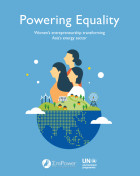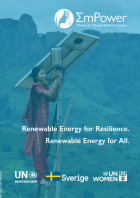1 - 15 of 15 Results
Date:
This repository reflects UN Women’s work addressing a critical and growing form of violence that disproportionately affects women and girls worldwide. Technology-facilitated violence against women and girls (TF VAWG) includes any act committed or amplified through digital means, leading to physical, sexual, psychological, economic, or social harm.
Date:
Key knowledge gaps can hamper delivery of effective response and prevention programmes. There is little comparable, reliable data on the prevalence, forms, impact, and drivers of technology-facilitated gender-based violence (TFGBV) across different global regions and social intersections.
Date:
This report highlights some regions and countries of the world that have recorded a slight decrease in the number of femicides, hence contributing to global knowledge of how to effectively prevent femicides. The report reveals that the number of countries reporting on femicides has decreased by 50 per cent in the past five years.
Date:
Women in South-East Asia face diverse online harms. This UN Women research brief seeks to better understand the digital security landscape in South-East Asia as experienced by women activists, human rights defenders, public figures and Internet users at large.
Date:
This Facilitator’s Manual, developed by UN Women and the UN University Institute in Macau (UNU Macau), is designed to guide facilitators and organizers in planning, preparing for, and conducting training sessions aimed at building cybersecurity capacity and resilience.
Date:
There have been few efforts documenting the experiences of WCSOs and WHRDs with cybersecurity threats, their cyber vulnerabilities and the ways they enact cyber resilience. In conducting this research, UN Women and the UN University Institute in Macau (UNU Macau) acknowledge that women are disproportionally negatively affected by cybersecurity risks.
Date:
This research conducted by UN Women and the UN University Institute in Macau (UNU Macau) examines the opportunities and risks of AI from a women, peace and security (WPS) lens in South-East Asia, with a focus on four types of gender biases in AI which will need to be addressed before the region can fully benefit from new technological developments: discrimination, stereotyping, exclusion and insecurity.
Date:
At the United Nations Climate Change Conference (COP28), UN Women together with the Office of the COP28 President, UN High-Level Champion for Climate Change, UNFCCC, IUCN and WEDO, convened Counting on a sustainable future: A global conference on gender and environment data.
Date:
The toolkit provides a grounding in risk control and business continuity, with particular reference to the COVID-19 pandemic response. With its step-by-step guidance, checklist, and various tools, the toolkit becomes a self-learning tool for SME leaders across the world, so that they can better address risks and build their own gender- responsive business continuity management system.
Date:
The finance maps work much like a dating site for women entrepreneurs and finance providers. First, you open the finance map for your country. Second, simply fill out your profile, filter on what you are looking for and the map will list the finance providers that best match your business.
Date:
The WE Rise Toolkit for Accelerators consists of three tools that provide actionable steps to unlock the power of gender inclusivity for your organisation and acceleration programme. This will enable entrepreneurs from all genders to benefit equally from the support you have to offer. To implement a more inclusive and innovative acceleration programme that yields business benefits for entrepreneurs and ecosystem partners, it’s advised to applying all of the three tools.
Date:
The WE Rise Toolkit for Entrepreneurs consists of four tools that provide actionable steps to unlock the power of gender inclusivity for your business. The WE Rise Toolkit is unique in the fact that it shows how gender equality means good business. You can use our four tools in an iterative manner. Once you’ve completed all four tools you can start over as to further sharpen your gender inclusive business.
Date:
At the same time the world is witnessing changing future of work and women’s share in the gig economy is increasing. Reports indicate positive aspects of this growth, such as the financial independence women gain from entering this economy as well as enhancement in the sense of self-identity for those who participate in the economy through platforms that help them advertise and sell their goods and services. However, this area is also fraught with challenges for women. While the ease of doing business that comes from using digital platforms clearly facilitates women’s participation, it also renders them susceptible to sudden changes in employment opportunities or fluctuations in the economy.
Date:
The report considers various business models spanning across sectors like agriculture, WASH, public infrastructure, nutrition and the policy environment that can reinforce this.
Date:
In the Asia-Pacific region, climate change and climate-induced disasters continue to ravage the lives and livelihoods of over 4 billion people. Increasingly dependent on natural resources, communities relying on agriculture, forestry, fisheries are at the frontlines of climate change. Polluting fossil fuels, often sources of energy, contribute to almost 60% of greenhouse gas emissions.

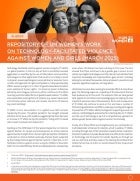
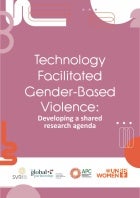
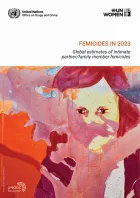

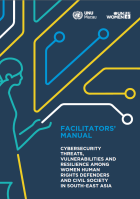
![[cover]](/sites/default/files/styles/search_image_140px/public/2024-05/ap-c881-cybersecurity-resilience-report-2024-960px.jpg?itok=Wz8Y1AyN)
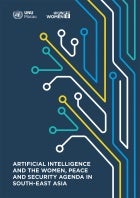
![[cover]](/sites/default/files/styles/search_image_140px/public/2023-12/ap-call-to-action-gender-environment-data-960px.jpg?itok=KUOWLy2p)
![[Cover] Ready for Risk](/sites/default/files/styles/search_image_140px/public/2022-05/cn-BCP_toolkit-EN_0523-1679px.jpg?itok=l4xzQVxR)




